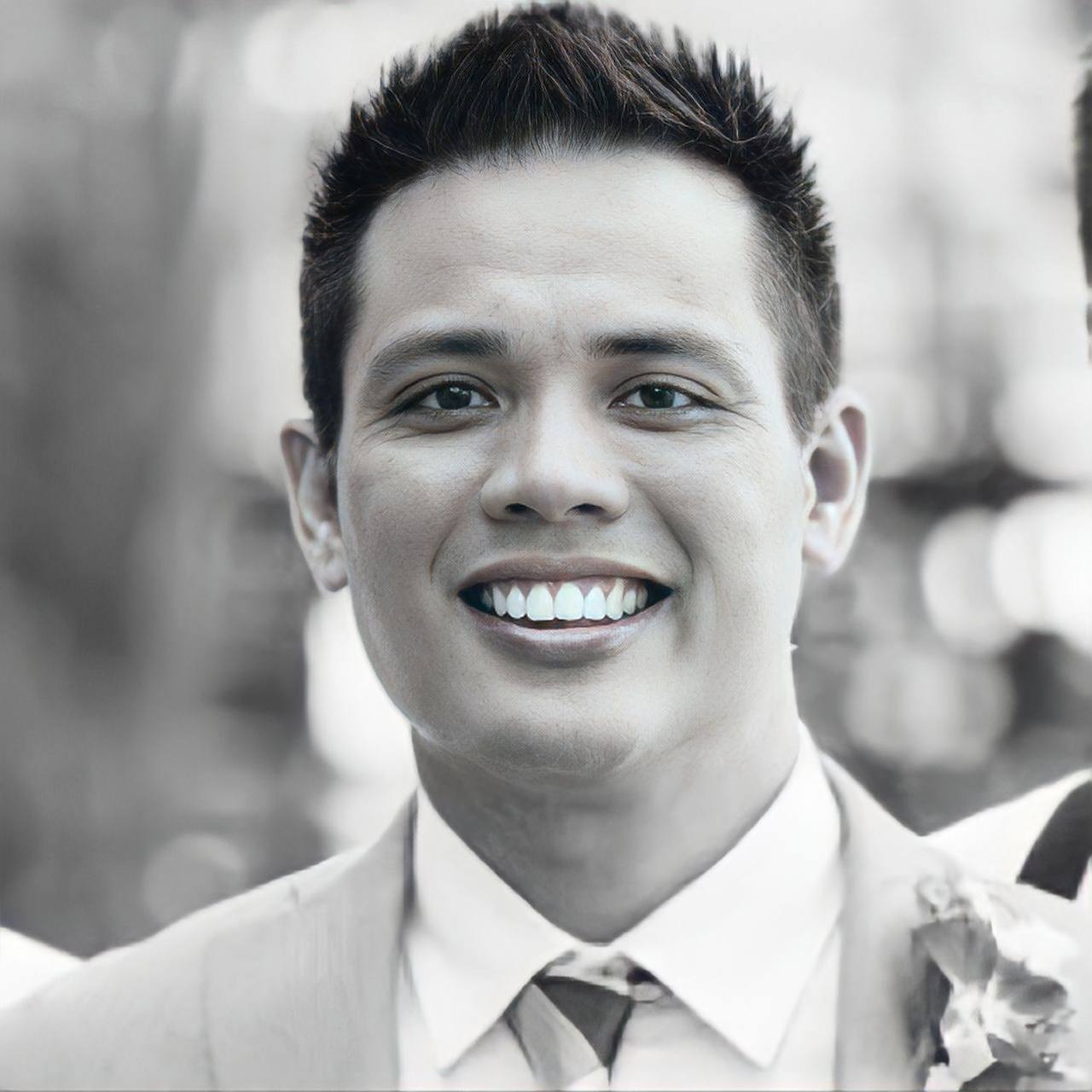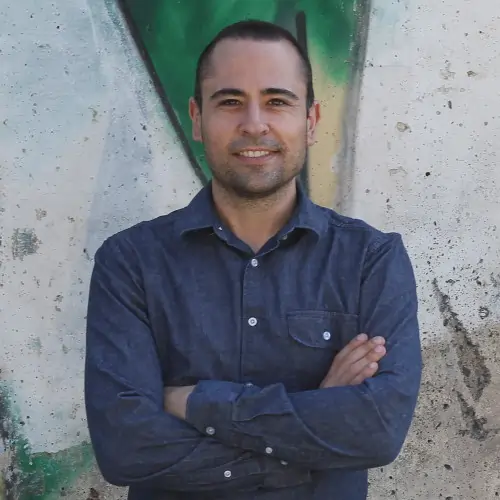
How to develop a software platform that can solve customers' pain points?

Hire
Hire by role
Hire Front-end developers
Hire Back-end developers
Hire Full-stack developers
Hire Android developers
Hire iOS developers
Hire Mobile developers
Hire AI engineers
Hire by skill
Hire JavaScript developers
Hire React Native developers
Hire React.js developers
Hire .NET developers
Hire TypeScript developers
Hire Flutter developers
Hire Golang developers
Hire by country
Devs in Ukraine
Expirienced engineers with strong product focus and fast integration.
Devs in Poland
EU-based developers with reliable delivery and high standards.
Devs in Argentina
Senior engineers with strong technical depth and timezone alignment.

Oleg
Hi Ross! I'm very pleased to have you here with me today. I appreciate you found time to record the video podcast episode. To start, Ross, could you please tell us a little bit about yourself and take us back on your early days in the business world? What were your first experiences that set you on the path to becoming a creative leader?
Ross
Sure. Well, I actually have a little bit of a unique background. So, I actually studied in academia as an anthropologist and was originally planning to become a professor, but moved out of academia after grad school because I decided I didn't want to do that and moved into design, and innovation, and research more generally. I worked at a design agency and then some research and strategy functions at companies like Ford Motor Company and AT&T. And then, recently, landing at Accenture, where I was heading up design research for the West Coast Studio of what was Fjord and then Song. Then, was also on the business design team. But most recently, I launched a startup called ResearchGOAT, which is an AI research platform focused on automating qualitative research, basically.
Oleg
Got it. Thanks. Could you provide an overview of your current project you're actually involved in and elaborate on specific challenges or issues it addresses in a more detailed way?
Ross
Sure. Yeah. I mean, the main thing is just getting research go off the ground. So, we've launched the product. But it's a long road from there in terms of scaling it and getting it to, you know, ideally where it needs to be. So, the biggest challenge is just we're bootstrapping the startup, trying to do it all with internal funding and funding through customer revenues.
So, just deciding, you know, when to build up something and where the priorities should lie and just deciding what's next is the biggest challenge.
Oleg
Okay. In addition to your professional life, do you have any personal interests or hobbies that you're passionate about, and how they complement your work or provide balance in your life?
Ross
Sure. Yeah. I mean, with any startup, it's obviously can be pretty stressful and just trying to get away from that stress from time to times. Yeah, I mean, I try to exercise workout most days to relieve stress, I suppose, and then, just getting out of the house, going on a hike, going to a restaurant, eating out, or cooking food. Yeah, just things to sort of distract from the stresses of day-to-day.
Oleg
How do you stay ahead of market trends and ensure that your insights remain relevant and cutting-edge for your clients?
Ross
I mean, honestly, I think it's just staying tuned to what people are saying. I mean, thankfully I have a pretty wide network in a lot of different industries and worked in consulting. Just on my LinkedIn, I'll see tons of different people discussing different things. So, try and get in those discussions, see what people are talking about. And then, I'm also a very active reader. Just read as much as I can from as many sources as possible. I try to read New York Times and Wall Street Journal every day, and then various magazines like Wired, The New Yorker, things like that every month.
Oleg
Okay. I think you need to have quite a bit of time. As a startup Founder, owner, it can be challenging to have to read a lot.
Ross
Definitely. Yeah. That's one of those balance things as well.
Oleg
Especially these days.
Ross
But audiobooks and things help as well.
Oleg
Are there any professionals or leaders in your network who inspire you in your professional journey?
Ross
I mean, I don't know. It's hard for me to point to one person specifically, but anybody who goes out, and does their own thing, and is successful at it. It's pretty inspiring and something to look up to. Cause yeah, it's very challenging. And when you go and do that, you know how challenging it can be. So. I mean, anybody who does that, it's inspiring.
Oleg
As someone who has worked with major players in various industries, what common challenges do you observe, and how do you navigate those challenges to deliver impactful solutions?
Ross
Well, I mean, I think it's difficult to launch initiatives and things like that. Basically, navigate the bureaucracy and things like that, to do things, and get things built, or do a research project. So, I mean, that's really what we're trying to do with our platform – kind of simplify research as much as possible. It's not something that has to go through multiple levels of approval and things like that. But that challenges exist in any area of research, or building an app, or whatever it might be. Yeah, that's definitely the biggest thing.
Oleg
What lessons have you learned from your own journey that you believe are crucial for anyone aspiring to reach the C suite in their career?
Ross
Probably, just a couple of things. Just persistence and continuing to believe in yourself, I guess. And then, building up a particular skill set and niche that works and that is sort of a unique value. And so, you know, people can keep recognizing that unique value as you continue to move up.
Oleg
Okay, thanks for the response. Human-centered design and collaboration are highlighted as your passions. Can you share a specific example where these principles play a crucial role in the success of a project or partnership?
Ross
Certainly. Yeah. I mean, when I was working in consulting, most projects would use human-centered design, utilizing research and various design strategy methods, personas, journey mapping, things like that. One of the cool ones was working with Samsung. You know, I admire Samsung as a company. They do a lot of innovations, and just kind of throw things out there, and try things. So being able to work with their product innovation team where you go out, and you do some discovery research, you find potential opportunity, and they're always willing to, you know, it's a worthwhile idea put it in one of their products and try it out. I mean, that's led to a lot of failures, but also a lot of successes on things that they put into their products.
Oleg
With the growing trend of remote work and distributed teams, how do you think it's influenced the approach of outsourcing? And what considerations have you taken into account when working with remote tech teams?
Ross
Yeah, I mean, we're totally distributed. We're very small team and having just started. But...
Oleg
How many of you today?
Ross
I mean, essentially zero employees – all contractors, and then myself, and two other Founders. So, about six or seven of us, and that's design, engineering, marketing, sales, essentially. And yeah, the team is completely distributed. Engineering is basically located in Canada, even though I'm in Los Angeles. Yeah, I mean, it's really ideal for us, and I don't really see any downside. But you know, I'm somebody who's worked distributed for a very long time. Coming from consulting, everybody I was working with is sort of on calls and things. So, it's just very natural to work with a distributed team for me.
Oleg
Could you comment on the challenges associated with the shortage of qualified specialists in the IT sector, particularly in relation to your business?
Ross
I don't know how much insight I have there because I don't know what I don't know. You know, I'm not necessarily the IT specialist in the business. I guess it was a challenge certainly to find... You know, we have particular things we want to build, and it can certainly be a challenge to find those people, track them down, and trust in their competency. That is definitely very difficult, especially for somebody who's, you know, I'm not an engineer by trade. So, being able to figure out who's competent, who's not – that's a difficult process. It takes some trial, and error, and testing.
Oleg
How is your development team structured now?
Ross
I mean, it's essentially an outsourced development team.
Oleg
Okay. So, you do outsourcing to an external partner.
Ross
We do. Yeah, it is an external partner. Again, I'm not a technical Founder, and we don't have the core competency to build what we needed within the team. So yeah, we worked with an external vendor.
Oleg
What were the precise factors that prompted you to consider IT outsourcing?
Ross
Well, I mean, we didn't have the money to hire somebody internally, so that was the primary thing. And just being able to go, and shop around, and find somebody who would make sense for our needs.
Oleg
And what are the benefits and drawbacks of outsourcing?
Ross
Well, I mean, the definite drawback is it's not as easy to communicate and go back and forth, you know, like an internal team member. Things can take a little longer. It might take a little longer to get coordinated on things. You know, and advantages, like I said, we don't have the particular team internally, and we are bootstrapping the product. So, not having to have the person here locally is important. So yeah, definitely some pluses and minuses.
Oleg
How do you measure the success of collaboration with an IT outsourcing partner?
Ross
Well, I mean, we have a pretty clear vision. You know, we have like the design internally. So, we know what we want the product to look like, what we want it to do. All those sorts of things that we have, we have that very clearly laid out. It's not just like back-a-napkin sketches. So, it's basically how well we're aligning with that vision.
Oleg
As we wrap up our conversation, what advice would you give to other companies considering IT outsourcing right now?
Ross
I mean, I guess just to do your homework. I mean, certainly, I get bombarded with IT outsourcing requests every other day on LinkedIn and things like that, so it can be difficult to know who to trust and who's good, who's not. So, yeah, just finding somebody to trust and taking the time to do so.
Oleg
Got it. Thanks for your time, Ross. Thanks for joining me today. I'm sure that some of the insights you shared would be useful.
Ross
Yeah, absolutely. Thank you for having me.